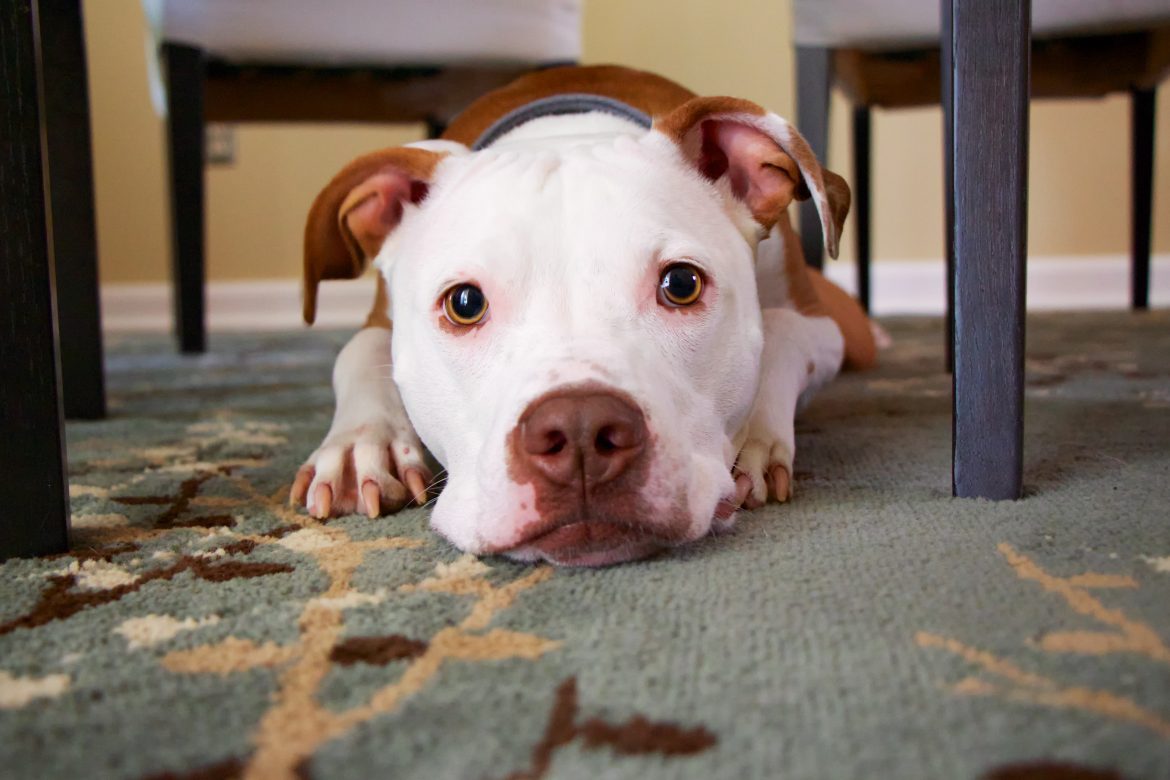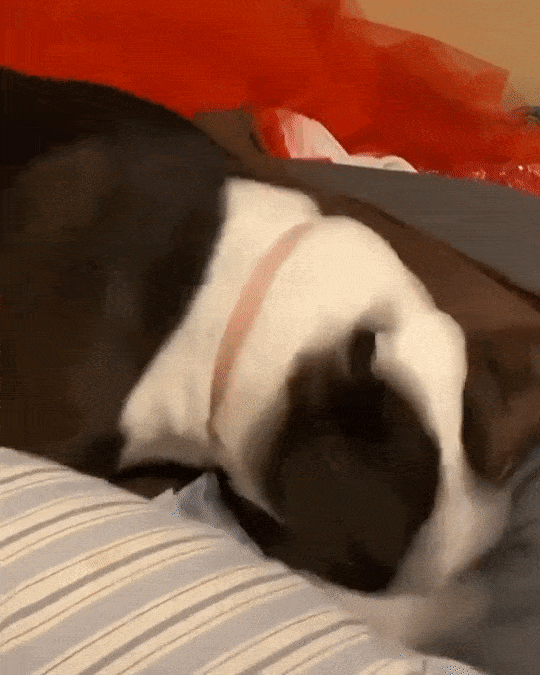Pitbull allergies are a real buzzkill. It is fun watching your bluenose pitbull puppy frolicking in the meadows without a worry in the world, up until they come home with an itchy coat, a runny nose, and bloodshot watery eyes. Pitbull allergies are real, but there are easy and inexpensive ways to treat them.
First things first,
Pitbull allergies : why do pitbull dogs get allergies?
Pitbull allergies can be caused by;
- Nutrient deficiency
- Food allergens
- Environmental allergens
- Medication
- Parasites
- Cleaning products
Nutrition deficiency
A deficiency in specific vitamins and minerals can be the cause of skin allergies in your pitbull dog. Studies show a severe decrease in the mineral Zinc can cause dry, scaly, or flaky skin in pitbull dogs. Other notable symptoms of zinc deficiency in Pitbulls include
- Hairless spots
- Crusty skin
- Reddening skin
- Lesion around the ears and footpads
- Oozing wounds in areas where the dog scratches a lot- ears, mouth, and chin.
Zinc-related skin allergies can affect pits of all ages, including puppy Pitbulls. Dry flaking skin is an early sign that your pitbull puppy is not getting enough zinc in its food. Also, poor mineral absorption could lead to zinc deficiency, which eventually triggers allergies.
Solution:
Adding foods rich in zinc to your dog’s diet could reduce his skin allergies. Lean meat and chicken are two great sources of zinc for your pitbull puppy or dog. Alternatively, you could add zinc dog supplements into your dog’s homemade food. A supplement like Bullyade vitamins and minerals has the right amount of zinc required by dogs of all ages.
Food allergens
Your pitbull’s allergies may be a result of ingredients in the food he eats. In dogs, food allergies occur due to sensitivity to a specific protein in their diet. Your pitbull dog could be reacting to proteins in beef, pork, or chicken.
Pruritus or severe itching is the first sign of food allergies in pitbull dogs. Itching on the paws, head, or coat could happen within 6 hours of feeding. It can also take 24 hours for the symptoms to appear. Other signs to watch out for include;
- Sneezing
- Sudden skin rash
- Scaly or oily skin
- Loss of pigmentation on the skin
- Rough skin texture (leathery)
Solution:
The best way to cure food allergies in your pitbull dog is by first taking it to a vet. The vet will test the dog for various proteins to isolate the primary allergen. Ensure you give your vet a full report of your dog diet.
Once the primary protein allergen is identified, all you do is eliminate it from your dog’s food. Your vet will also suggest a new pitbull diet that removes the protein triggers in the old diet. Monitor your dog’s diet right from when they are fresh from weaning. It is easier to stop harmful proteins when introducing them to solid foods for the first time.
Environmental allergens
Most skin and coat allergies in Pitbulls come from external factors or environmental allergens. The hairs on a pitbull’s coat do so little to stop environmental allergens from reaching the dog’s skin. Common allergy triggers include;
- Grass
- Pollen
- Parasites
- Plant sap (latex)
Pollen from grass and flowers latch onto your dog’s coat, causing him to itch. Your pitbull also carries pollen indoors onto your carpet, couch, and beddings. It could explain why your pitbull is ever sneezing when chilling on the sofa with you.
Also, parasites like mites, fleas, ticks, and mosquitoes can cause severe itching and scratching in your pitbull dog. Some pitbull dogs are allergic to the chemicals produced by the mites when they bite. A mite infestation that is not treated can lead to severe skin conditions in a pit bull.
Some dogs are allergic to latex produced by trees. Other dogs may be allergic to synthetic latex, which causes severe itching and irritation. Significant symptoms of latex allergy in Pitbulls include;
- Hives
- Coughing
- Inflamed feet
- Watery lesions
- Hair loss
- Face rubbing
- Ear infections
Solution:
One way to eliminate environmental allergies is by checking both your outdoor and indoor environment. You may have to limit your dog’s movement outside, especially in spring when there is an increase in pollen production. Make it a habit to clean your dog’s paws and brush its coat whenever they come in from outside.
As you groom your pitbull, check them for ticks, fleas, or mosquito bites. Ticks and fleas tend to latch onto the skin and don’t come off quickly. Your vet will prescribe pet-friendly products that will eliminate the ticks and prevent another infestation.
Moisturize your dog’s paws before and after they come in from outside. There are plenty of pet paw balms on the market that will soothe cracked or dry feet. Alternatively, go with a simple home remedy like coconut oil for dogs. It reduces inflammation and keeps the skin soft and moisturized.
Medication
Some prescribed medication can trigger allergies in your dog. The immediate action here is to stop any medication that is giving your dog allergies. Consult your vet to find alternatives that are milder and will cure the ailment your dog has.
Cleaning products
Dogs can get allergies from the products we use in cleaning our homes. It could be bleach products or human shampoo. Always give your dog the day off when doing general cleaning in your home. Alternatively, switch to cleaning products that have not fragrant or contain chemicals that can harm your dog. Also, invest in pet-friendly shampoo that includes ingredients like oatmeal. Oatmeal is a perfect ingredient for nourishing your dog’s skin and reducing skin inflammation. You can also make an oatmeal bath for your dog before cleaning their coat with pet-friendly shampoo.
Other treatments for pet allergies
Severe pitbull allergies can be challenging to treat, even with natural remedies. If your pitbull’s allergies persist, your vet may prescribe any of the following;
- Immunotherapy involves your dog getting injected with allergy-fighting compounds to boost his resistance to allergens.
- Antihistamines- These are great for seasonal pitbull allergies. Antihistamines can treat the symptoms that immunotherapy does not address.
- Fatty acids- dog supplements with fatty acids improve your dog’s skin and coat. These supplements also reduce skin allergy symptoms.
- Steroids- steroid treatment helps reduce itching and skin inflammation. Steroid treatment may be necessary for a pitbull that gets severe seasonal allergies.
- Strict diet plans- a strict diet plan may be necessary if your pitbull’s food allergies persist. You will have to keep your dog on that same diet and restrict any processed foods and doggy treats that can trigger allergic reactions.
I am a highly skilled content writer and SEO expert with a passion for helping small businesses succeed in the digital world. With my extensive knowledge of the latest SEO techniques and strategies, I have successfully assisted numerous clients in improving their website rankings, generating more leads, and driving a significant increase in website traffic.
As a professional content writer and SEO expert, I am confident in my ability to contribute significantly to the success of small businesses. If you are seeking a results-driven, highly skilled digital marketer who can help you increase your ranking, convert new leads, and see a substantial improvement in website traffic, I would welcome the opportunity to collaborate with you.
Website: https://manmadewebsites.com/
Email: hello@digitalmarketingchap.com


